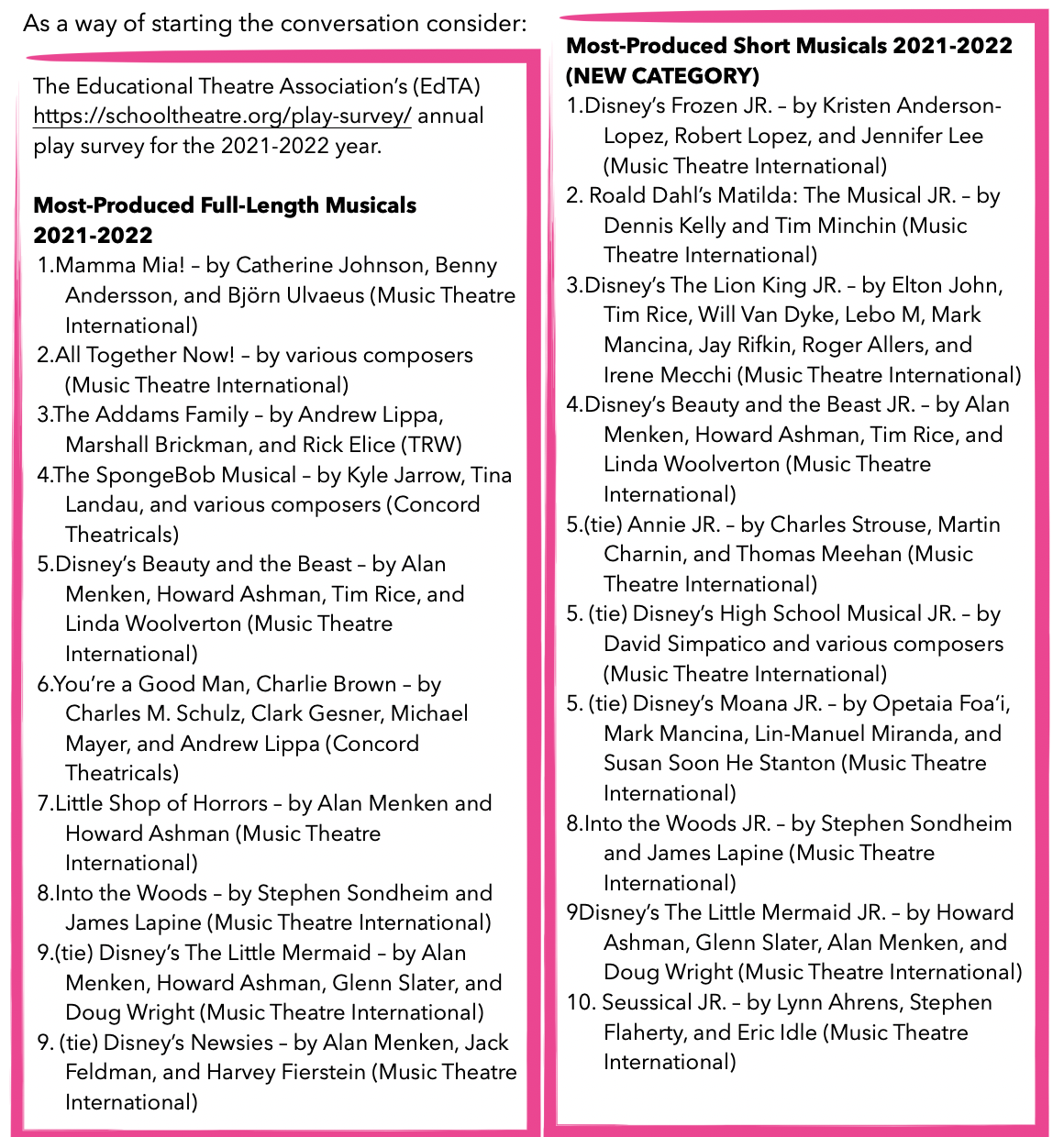Music Monday - What will we do next? How do you decide the next musical?
/The curtain has just descended on your successful production. Your students (and their parents and even the Principal) are clamouring: “what will we do next?" You’ve done a run of successful shows and you want the next one to be as successful. How do you rise to this challenge?
This can be a delicious dilemma.
But there are questions that need answers.
How do you choose the next musical or play to produce in your school?
Who decides?
What is the process? Is there a process?
What are the principles on which choices are made?
Is the choice of your school’s next production whim? What’s trending? Debate? Consultation?
Who and how you decide is a measure of your underlying values.
Who decides makes a difference.
How often are drama teachers portrayed in films as loopy, self aggrandising megalomaniacs (for comic purposes of course)! But can this sort of decision making ever be truly democratic? There is a question that needs to be always asked: whose production is this?
A process establishes clear guiding principles, timelines and is transparent and consultative
Some questions to developing guiding principles
Choosing a production in an education setting
How does this choice of production meet the learning needs of your students?
Is the production designed to meet a mandated curriculum or syllabus requirement?
For example, if the syllabus requires students to explore examples of historical music theatre using book structures and fully integrated songs and dances then the choices are different if what was required was a jukebox musical.
what is the overall purpose of the production?
Is it to satisfy syllabus standards? Or is it to bring together the school as a community working collaboratively on a shared project? Is it about “school spirit”? Or perhaps, what is the balance between these purposes?
Is this chosen production appropriate for the level of skills development and learning progression of your students?
– Vocal range?
– Level of dance?
– Specialised dance such as tap?
– Emotional demands of roles?
In other words can your students manage the song ranges, dance requirements, acting challenges? It is OK for younger students to work on Junior Versions with adjusted scores.
Is it age appropriate in terms of content, and acting?
There is nothing quite as off-putting as a Year 9 playing (trying to play) Bloody Mary in South Pacific.
Are the themes and subject appropriate for your school setting?
Will the community support it?
Will your Principal and colleagues go on the journey with you?
Practical issues
Can you get the rights?
What is the size of the cast?
What is the gender balance of roles?
What is the gender balance of your students available for the production?
What are the staging requirements?
For example, Does it require Peter Pan flying? Or are there multiple sets? costumes? Props?
Is the title recognisable and marketable for your community?
Do you have to have a well-known production?
Some productions, particularly musicals are known properties. Parents as audiences know the difference between Mama Mia and all the nearly-made it shows in the catalogue.
There is one final question: do you want to spend countless hours of your life and a river of sweat and tears on a show that you don’t believe in?
It’s not as simple as pulling up the MTI Catalogue and sticking a pin in the title list.
The Educational Theatre Association’s (EdTA) https://schooltheatre.org/play-survey/ annual play survey for the 2021-2022 year.











